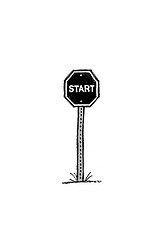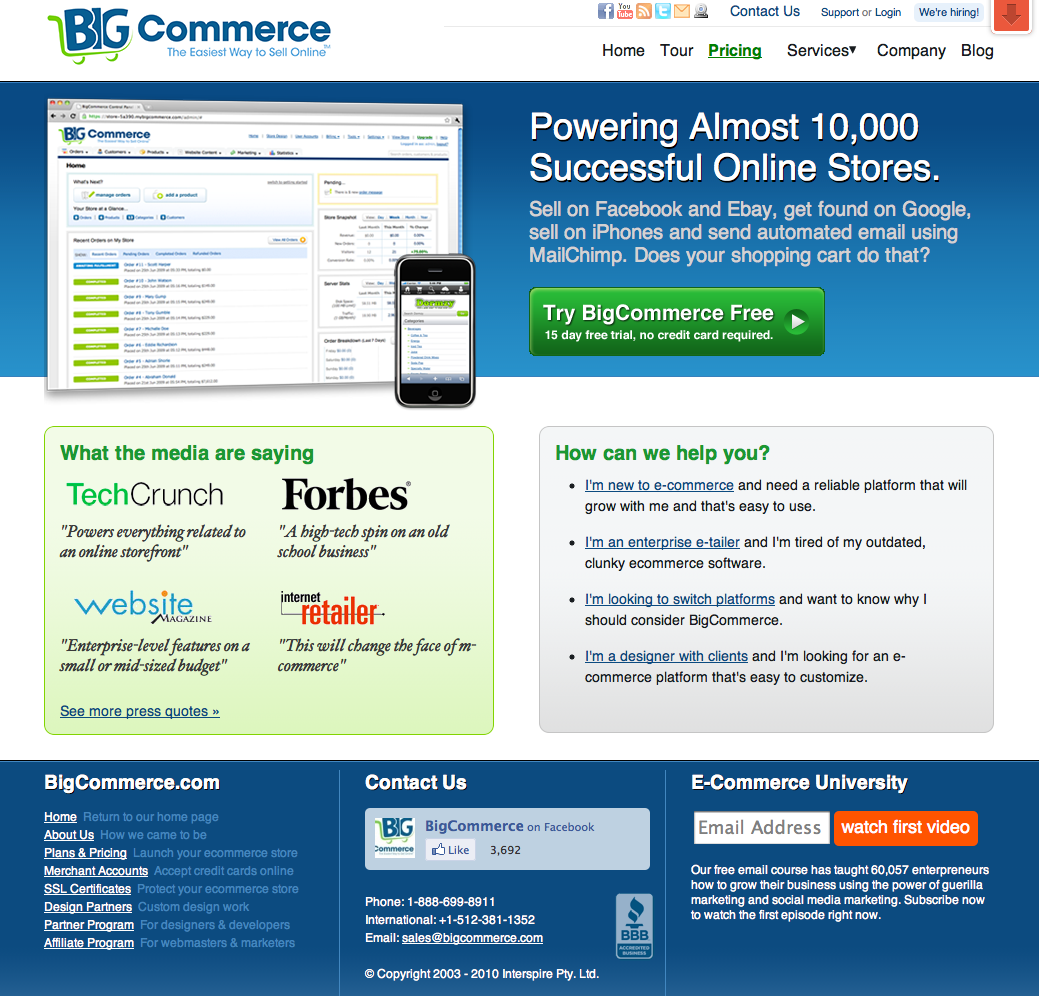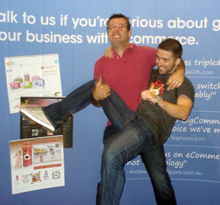Today (Jan 19, 2011) is Boycott a Meeting Day
Just say NO to meetings. Every minute you avoid spending in a meeting is a minute you can get real work done instead. Click the button to show solidarity with the anti-meeting movement!
You’re reading Signal v. Noise, a publication about the web by Basecamp since 1999. Happy !

Now: The creator of Vooza, "the Spinal Tap of startups." Previously: Employee #1 at 37signals and co-author of the books Rework and Getting Real.
Just say NO to meetings. Every minute you avoid spending in a meeting is a minute you can get real work done instead. Click the button to show solidarity with the anti-meeting movement!
Time: 16:08 | Download MP3
Summary
A discussion about hiring and applying for jobs. What’s the best way to find candidates? What makes for a good “help wanted” post/ad? What’s the key to a good cover letter? What happens in an interview with 37signals?
More episodes
Subscribe to the podcast via iTunes or RSS. Related links and previous episodes available at 37signals.com/podcast.

 Nejc Polovsak remade a REWORK illustration (original at right) in 3D. It was an hour from concept to finished design. He writes, “I think it’s a good habit to start making things as soon as you get the idea, take an hour and start working on it. Usually when you just write it down in your to-do list it never gets done and usually the excitement is never so intense as the first time. So just start and create/design/do stuff already.”
Nejc Polovsak remade a REWORK illustration (original at right) in 3D. It was an hour from concept to finished design. He writes, “I think it’s a good habit to start making things as soon as you get the idea, take an hour and start working on it. Usually when you just write it down in your to-do list it never gets done and usually the excitement is never so intense as the first time. So just start and create/design/do stuff already.”
When 37signals began writing REWORK, author Tim Ferriss offered us helpful advice on the publishing world and book marketing. We’ve admired his lean writing style, focus on efficiency, and outsider-to-bestselling-author ascent for a while now. Recently, I sat down with him at The ACE Hotel in NYC to find out more about his views on the workplace and the advice he gives to startups.
 Do you hate your job? Good. At least, you’re not bored with it. That’s how Tim Ferriss looks at it. According to Ferriss, feeling comfortable at your job can be a trap. "It’s worse to tolerate your job than to hate it because, if the pain is painful enough, you’ll make a change," he says. "But if it’s tolerable mediocrity, and you’re like, ‘Well, you know it could be worse. At least I’m getting paid.’ Then you wind up in a job that is slowly killing your soul and you’re allowing that to happen. Comfort can be a very, very dangerous thing."
Do you hate your job? Good. At least, you’re not bored with it. That’s how Tim Ferriss looks at it. According to Ferriss, feeling comfortable at your job can be a trap. "It’s worse to tolerate your job than to hate it because, if the pain is painful enough, you’ll make a change," he says. "But if it’s tolerable mediocrity, and you’re like, ‘Well, you know it could be worse. At least I’m getting paid.’ Then you wind up in a job that is slowly killing your soul and you’re allowing that to happen. Comfort can be a very, very dangerous thing."
So how do you break out of a comfort rut? Ferriss says, "It’s very valuable to amplify the pain. If your job is mediocre, sit down and do an exercise on paper to really run through what your life is going to look like in two, three, five years if you continue to do what you’re doing. What options are you going to have? If you don’t have kids now, but you’re going to have kids in five years, do you want to be in the same job at that point? What are your options going to be then? What is your risk tolerance going to be then?
"When people telescope out a few years to the natural conclusion of their current behavior, it can be really terrifying. And I think that’s what more people need. Its certainly what I needed. I was doing extremely well financially in mid-2004. And then I had a long term girlfriend break-up with me because of my 7am – 9pm schedule. It was a huge eye-opener for me. And I needed that pain, or I would not have changed my behavior."
The end goal is not idleness
That change of behavior led Ferriss to slash his time commitments, which became the basis of his breakthrough book. But is constantly searching for workplace hacks a worthy goal? If you’re doing something you love, do you really need to constantly search for shortcuts?
"I think one of the ways my message is misinterpreted is viewing the end goal as idleness," responds Ferriss. "That is a false idol. And it’s a very sad destination when you do arrive, because you recognize that it is not a worthwhile destination.
“Idleness is a false idol.”
"For me, the objective has always been: How do you improve per-hour output to the greatest extent possible? And how do you concurrently design the lifestyle that you want to have? Because I do believe that life is intended to be enjoyed. For many people, they love what they do, but they don’t want to do it 80 hours a week. For them, it would be dialing back from 80 to 40, let’s just say. Whether that’s a teacher, pastor, or writer — just being more efficient and effective with your time.
"In the second category, you have people who don’t love what they do. It comes back to that comfortable mediocrity. And for them, it’s about replacement. It’s not about reduction. For them, the goal is to get to the point where they’re doing what they love. And that is the objective of everything that I teach. It’s not to be idle, but it’s to get to the point where you control your time and allocate it to the things that will give you the most joy and also provide the greatest impact. For each person, that will be very individual."
Diversifying your identity
With his latest book (#1 bestseller The 4-Hour Body), Ferriss is evolving out of being the "The 4-Hour Workweek" guy. He says, "I don’t want to put out ‘The 3 1/2 Hour Workweek’ or ‘The 3-Hour Workweek.’ It would be boring for me to produce and it would be boring, I think, for many people to consume. So, ‘The 4-Hour Body’ for me, was the opportunity to focus on what I’ve been obsessed with for a much longer time than time management.
"A big part of it was diversifying my identity. I didn’t want to paint myself into a corner where I felt obligated to maintain a certain level of ‘success.’ Even if ‘The 4-Hour Body’ were to do far worse than ‘The 4-Hour Workweek,’ I felt this was a necessary step for my own personal preservation.
"I also wanted to diversify the public perception of my expertise. I want people, hopefully, to read my material because of the way I deconstruct problems, not because of the specific subject matter. I would rather be in the same vein as Malcolm Gladwell or George Plimpton than someone who’s known for just being an expert in one subject matter."
Ferriss has also spread out by becoming an angel investor (StumbleUpon, Digg, and Twitter among others) and advisor to startups. He gives don’t-put-all-your-ego-in-one-basket advice to the people he works with too. "One of the recommendations that I make to many of the startup founders I advise is to have at least three or four areas of interest outside the business," he explains. "Don’t become a Dow Joneser, someone whose mood and self-worth goes up or down dependent on the Dow Jones, which you have no control over.
"If your entire ego and identity is vested in your startup, where there are certainly factors outside of your control, you can get into a depressive funk that affects your ability to function. So, you should also, let’s say, join a rock climbing gym. Try to improve your time in the mile. Something like that. I recommend at least one physical activity. Then even if everything goes south — you have some horrible divorce agreement with your co-founder — if you had a good week and set a personal record in the gym or on the track or wherever, that can still be a good week."
Continued…[Sitting next to Craig Newmark while waiting for a delayed flight.] I’d heard Craig say in interviews that he was basically just “head of customer service” for Craigslist but I always thought that was a throwaway self-deprecating joke…But sitting next to him, I got a whole new appreciation for what he does. He was going through emails in his inbox, then responding to questions in the craigslist forums, and hopping onto his cellphone about once every ten minutes. Calls were quick and to the point “Hi, this is Craig Newmark from craigslist.org. We are having problems with a customer of your ISP and would like to discuss how we can remedy their bad behavior in our real estate forums”. He was literally chasing down forum spammers one by one, sometimes taking five minutes per problem, sometimes it seemed to take half an hour to get spammers dealt with. He was totally engrossed in his work, looking up IP addresses, answering questions best he could, and doing the kind of thankless work I’d never seen anyone else do with so much enthusiasm.
This is part of our “Bootstrapped, Profitable, & Proud” series which profiles companies that have over one million dollars in revenues, didn’t take VC, and are profitable. Note: Mitchell Harper will be answering reader questions in the comments.
 “I was building online stores for a few years and the off-the-shelf options were horrible,” explains Mitchell Harper, Co-Founder and Co-CEO of BigCommerce. “There were a lot of open source offerings, but they were basic and you needed a developer to customize the code for you. We wanted to build shopping cart software that was innovative and would give you an online store with most of the functionality of Amazon.com or Zappos.com for a few hundred bucks.”
“I was building online stores for a few years and the off-the-shelf options were horrible,” explains Mitchell Harper, Co-Founder and Co-CEO of BigCommerce. “There were a lot of open source offerings, but they were basic and you needed a developer to customize the code for you. We wanted to build shopping cart software that was innovative and would give you an online store with most of the functionality of Amazon.com or Zappos.com for a few hundred bucks.”
That desire led to BigCommerce, which is now approaching 10,000 paying customers. According to Harper, the company has grown 480% over the last 4 years and is the fastest growing ecommerce platform in the world. It was ranked the 14th fastest growing software company (#633 overall) on the Inc 5,000 list for 2010 and it now has 50 employees spread between its Sydney, Australia and Austin, Texas offices.
From chat room to company
Harper (right in photo below) and partner Eddie Machaalani (left) had each started a content management system already — Harper built SiteWorks, Machaalani created WebEdit — when they met in a programming chat room. They realized they were both in Sydney and eventually decided to join forces to build software together under the name Interspire.
 When they launched the Interspire Shopping Cart, it attracted thousands of businesses. Customers weren’t completely satisfied with the installable software though. Harper says, “We had so many people telling us how awesome it was, but that they didn’t want to have to deal with finding their own servers, installing it, upgrading it, etc. So that’s where the idea for BigCommerce came from.” BigCommerce lets customers create customized online stores via the web. These retailers can then access orders, products, inventory, and more without ever having to download any software.
When they launched the Interspire Shopping Cart, it attracted thousands of businesses. Customers weren’t completely satisfied with the installable software though. Harper says, “We had so many people telling us how awesome it was, but that they didn’t want to have to deal with finding their own servers, installing it, upgrading it, etc. So that’s where the idea for BigCommerce came from.” BigCommerce lets customers create customized online stores via the web. These retailers can then access orders, products, inventory, and more without ever having to download any software.
According to Harper, ease of use (e.g. embedding help tips and links to knowledge base articles in the app) is a big reason for the shopping cart software’s success. “We really had to focus on building simple user interfaces and keeping the complex stuff in the background,” he says.
Constant iterations have also helped. “We release major new features every 6-8 weeks and we’re working on getting that down to once a week. We look at BigCommerce as part of a larger pie that business owners need to compete. The other parts of the pie are order management software, accounting software, and analytics software. So making these integrations simple means BigCommerce can be used by hundreds of different types of businesses.”
Continued…The new Highrise redesign is live! This Product Blog post explains the key changes as well as some of the goals that influenced these changes.
Recently, we featured creative “application-sites” that helped candidates land jobs with 37signals. Now we’re curious to hear about folks who have used this approach elsewhere: Have you landed a job somewhere by creating a specific site (or know someone else who did)? Are you a company that solicits or hires off sites like these? Any other unorthodox job seeking stories (i.e. not the same ol’ same ol’ resumé/cover letter drill) that paid off? Tell us about it in the comments.
[Yahoo!] killed a lot of good startups, wasted a lot of engineers’ time, etc. Perhaps I spent too much time inside that particular sausage factory…
I wish I had not sold it to them. The cash and freedom do not even come close; I would rather work on a big, popular product.
Re: the new job openings at 37signals, seems like a good time to remind those who are interested of these creative “application-sites” that helped previous candidates land jobs with 37signals: